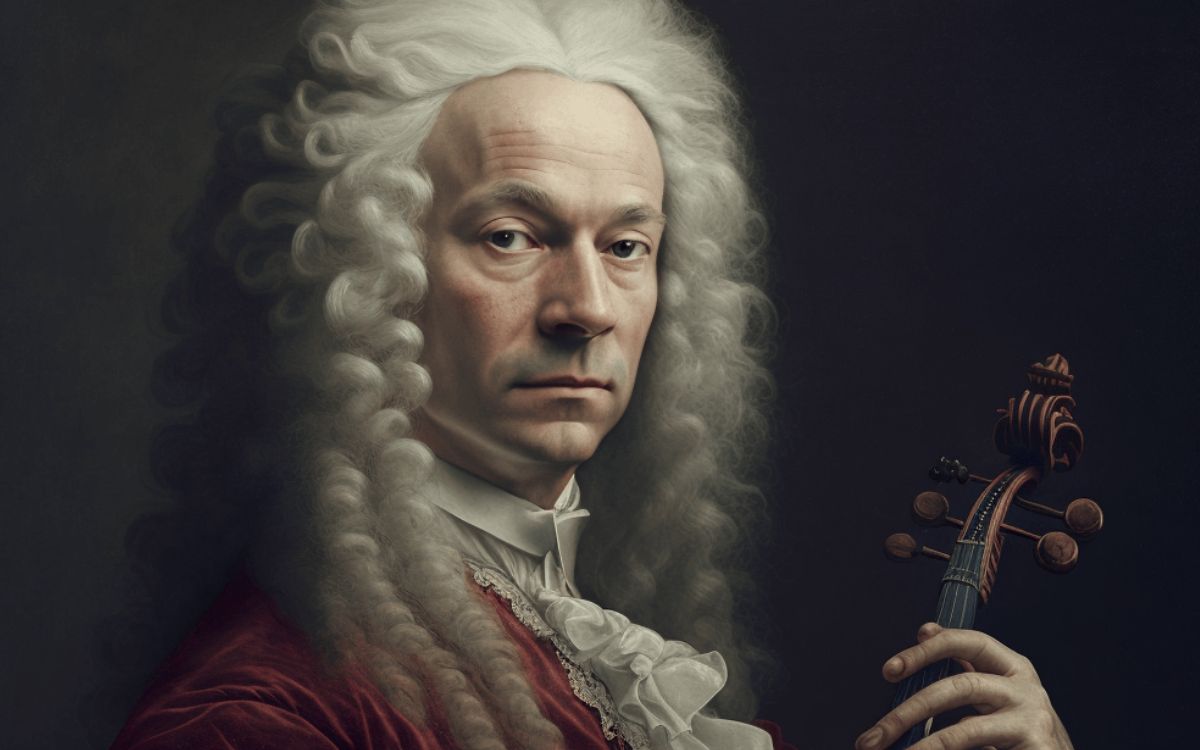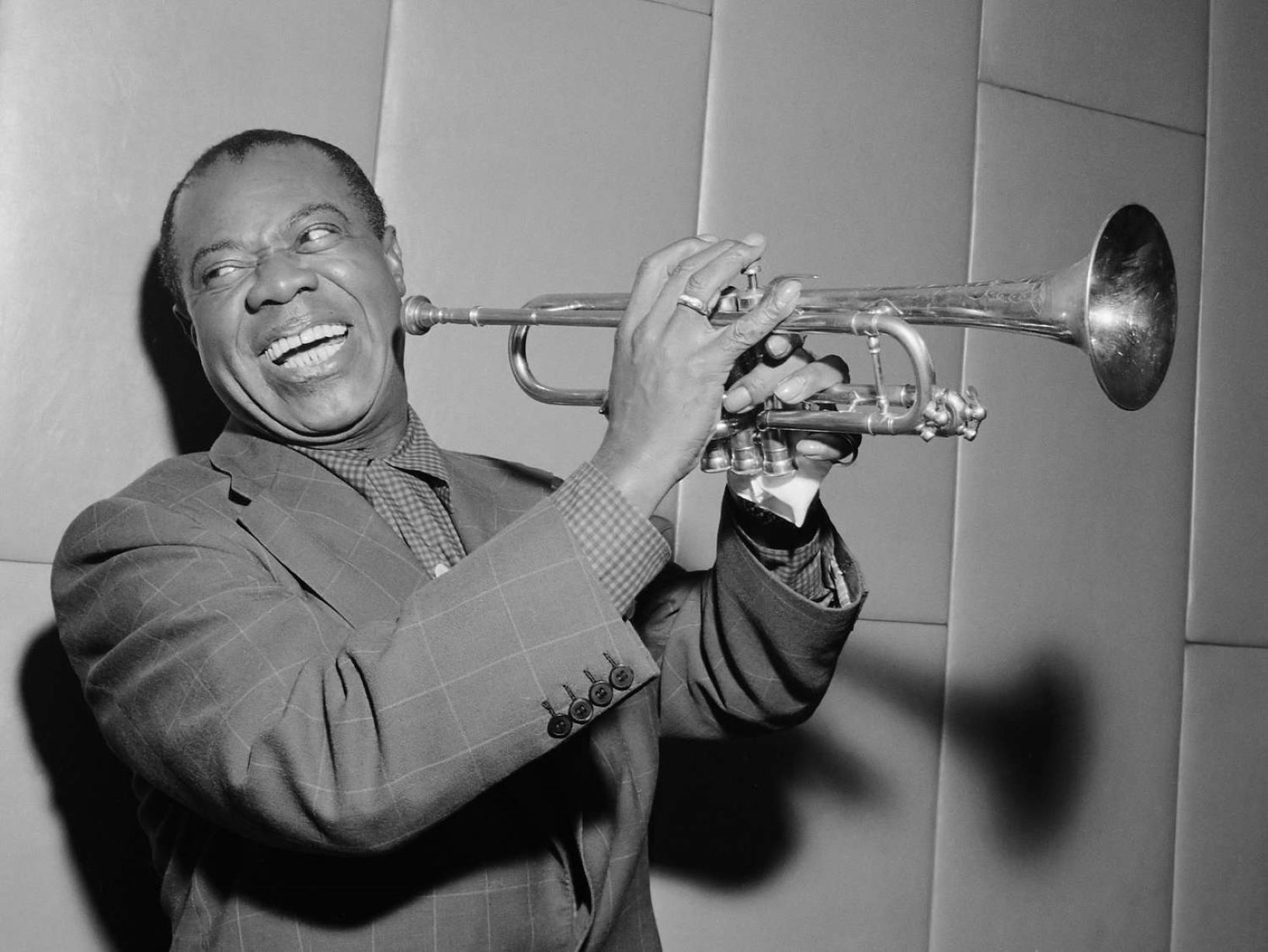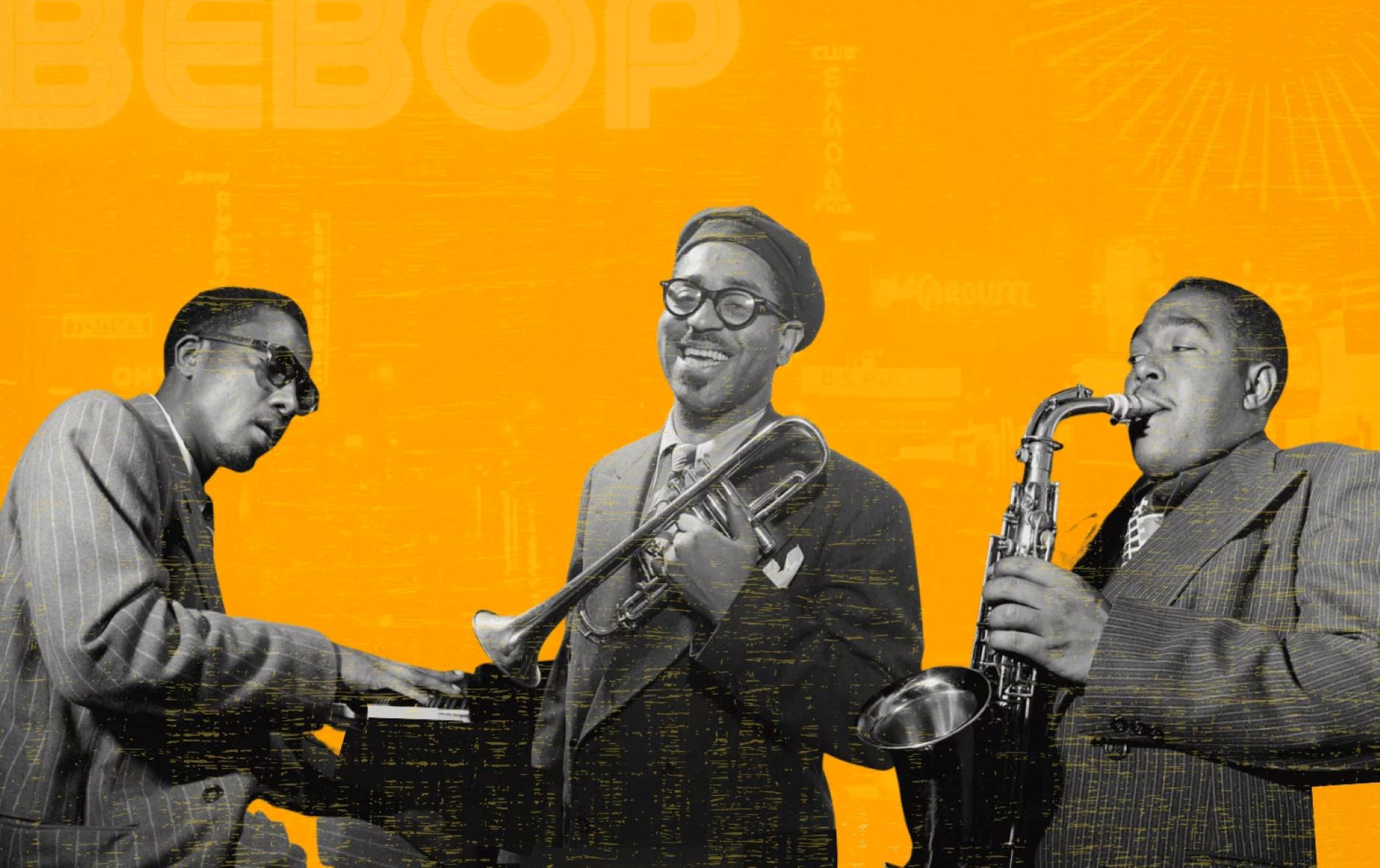Home>Production & Technology>Musician>Who Was The Most Influential Musician


Musician
Who Was The Most Influential Musician
Modified: January 29, 2024
Discover the most influential musician in history and their lasting impact on the world of music. Explore the extraordinary contributions of this legendary artist and their undeniable influence on the industry.
(Many of the links in this article redirect to a specific reviewed product. Your purchase of these products through affiliate links helps to generate commission for AudioLover.com, at no extra cost. Learn more)
Table of Contents
Introduction
Music has been an integral part of human culture for centuries, providing us with joy, comfort, and inspiration. Within the vast world of music, there have been numerous musicians who have left an indelible mark on the industry and have influenced generations of artists to come. These influential musicians have not only shaped the landscape of music but have also impacted our society, politics, and popular culture.
Throughout history, there have been remarkable musicians from various genres and eras who have pushed the boundaries of what is possible in music. From classical composers to rock icons, each musician brings their unique style, talent, and creativity to the table. Their contributions have revolutionized the way we perceive and enjoy music, making them the driving force behind the evolution of the industry.
In this article, we will explore some of the most influential musicians of all time and delve into their remarkable achievements. While it is challenging to narrow down the list to just a few artists, those mentioned here have had an undeniable impact on music and continue to inspire artists and fans worldwide.
Ludwig van Beethoven
Ludwig van Beethoven is widely regarded as one of the most influential composers in the history of music. Born in 1770 in Bonn, Germany, Beethoven’s innovative compositions and his groundbreaking approach to music bridged the gap between the classical and romantic eras. His works had a profound impact on future generations of composers and continue to be celebrated and performed to this day.
Beethoven’s music challenged the conventions of his time, breaking free from the constraints of traditional composition. His symphonies, concertos, and sonatas showcased his technical prowess and emotional intensity, pushing the boundaries of what was thought possible in music. His compositions were characterized by their dramatic depth, intricate structures, and powerful emotions, captivating audiences and revolutionizing the symphonic form.
One of Beethoven’s most famous compositions is the Ninth Symphony, commonly known as the “Choral Symphony.” This monumental work introduced the inclusion of vocal soloists and a full choir in a symphony, a groundbreaking innovation at the time. The symphony’s final movement, featuring the uplifting “Ode to Joy,” has become an anthem for humanity’s shared ideals and aspirations.
Beethoven’s musical legacy extends beyond his compositions. Despite suffering from hearing loss, he continued to create music, defying the limitations imposed by his disability. His perseverance and determination continue to inspire musicians and individuals facing adversity.
Beethoven’s influence can be seen in the works of countless composers who came after him, from Brahms and Wagner to Mahler and beyond. His impact on the evolution of music is immeasurable, and his ability to convey profound emotions through his compositions has made him a timeless figure in the musical world.
The Beatles
The Beatles, comprising John Lennon, Paul McCartney, George Harrison, and Ringo Starr, are undeniably one of the most influential bands in the history of music. Emerging from Liverpool in the early 1960s, The Beatles revolutionized popular music with their innovative songwriting, experimentation with different genres, and charismatic performances.
The band’s impact on popular culture and music cannot be overstated. With their infectious melodies, harmonies, and relatable lyrics, The Beatles captured the hearts and minds of not only a generation but also future generations. Songs like “Hey Jude,” “Let It Be,” and “Yesterday” remain timeless classics that continue to resonate with audiences today.
Musically, The Beatles pushed the boundaries of traditional pop music, incorporating elements from various genres such as rock, folk, psychedelia, and Indian classical music. Their exploration of new sounds and recording techniques, along with their expert songcraft, set a new standard for artistic expression in popular music.
Perhaps one of their most significant contributions was their album “Sgt. Pepper’s Lonely Hearts Club Band,” released in 1967. This groundbreaking album challenged the concept of what an album could be, as it showcased a cohesive and innovative collection of songs that flowed seamlessly together. It is often regarded as one of the greatest albums of all time and marked a turning point in the evolution of the music industry.
The Beatles’ influence extends beyond their music. They played a vital role in shaping the culture of the 1960s, with their style, fashion choices, and outspoken views on social issues. Their progressive and transformative impact on society continues to be felt to this day.
Countless artists, both within and outside the realm of popular music, have been inspired by The Beatles and have sought to replicate their success. Their contribution to the music industry and their ability to connect with audiences on a global scale have solidified their place as one of the most influential bands of all time.
Michael Jackson
Michael Jackson, often referred to as the “King of Pop,” is undoubtedly one of the most influential musicians of all time. With his extraordinary talent, mesmerizing performances, and creative vision, Jackson not only transformed the landscape of pop music but also set new standards for artistic expression.
From his early days as a member of the Jackson 5 to his immensely successful solo career, Michael Jackson captivated audiences with his unique blend of soulful vocals, electrifying dance moves, and innovative music videos. Songs like “Thriller,” “Billie Jean,” and “Beat It” became global phenomena and broke down racial barriers, receiving widespread acclaim and topping the charts.
One of Jackson’s most significant contributions was his groundbreaking music videos. He revolutionized the medium by infusing cinematic storytelling and elaborate choreography into his visuals, elevating the music video to an art form. His iconic “Thriller” music video, directed by John Landis, remains a cultural touchstone and is widely regarded as one of the greatest music videos ever made.
Beyond his musical achievements, Jackson’s philanthropy and humanitarian efforts were also profound. He supported numerous charitable causes and used his platform to raise awareness about social and environmental issues. His influence extended beyond the realm of music, making him an influential figure in popular culture and society at large.
Despite the controversies surrounding his personal life, Michael Jackson’s impact on music and popular culture is undeniable. His artistry and innovative approach continue to inspire and influence artists across genres. Whether it was his signature dance moves, his vocal range, or his ability to captivate audiences with his electrifying stage presence, Jackson’s influence on the music industry remains unparalleled.
Bob Dylan
Bob Dylan, born Robert Zimmerman, is an American singer-songwriter who has left an indelible mark on the music world and is widely considered one of the most influential musicians of the 20th century. Known for his poetic and introspective songwriting, Dylan’s music became the soundtrack of social and political change during the 1960s and beyond.
With his distinct raspy voice and acoustic guitar, Dylan emerged as a voice of a generation, capturing the spirit of the civil rights movement and anti-war sentiment. His songs, such as “Blowin’ in the Wind” and “The Times They Are a-Changin’,” became anthems of the era, reflecting the hopes, frustrations, and aspirations of millions of people.
One of Dylan’s most groundbreaking achievements was his transition from traditional folk music to a more electric sound. His album “Bringing It All Back Home,” released in 1965, marked this shift and sparked controversy among his folky fan base. This transformation challenged the conventions of folk music and solidified his place as an innovative artist who constantly pushed the boundaries of his craft.
Dylan’s influence extended beyond his music to his songwriting, which has been hailed as poetic and profound. His lyrics delved into themes of love, war, social injustice, and the complexities of the human experience. His ability to use words to convey emotion and create vivid imagery set him apart from other songwriters, earning him accolades such as the Nobel Prize in Literature in 2016.
Throughout his career, Dylan has continuously reinvented himself, embracing various musical styles and experimenting with new sounds. His versatility and willingness to evolve have cemented his status as a musical pioneer, inspiring generations of singer-songwriters who followed in his footsteps.
Bob Dylan’s impact on music and songwriting is immeasurable. His ability to capture the essence of societal changes and his unparalleled songwriting skills have made him an enduring figure in popular music. His influence continues to reverberate through the work of contemporary artists who admire his artistic integrity and commitment to creating music with meaning.
Elvis Presley
Elvis Presley, widely known as the “King of Rock ‘n’ Roll,” was a cultural icon who revolutionized popular music in the mid-20th century. With his charismatic persona, magnetic stage presence, and soulful voice, Presley captivated audiences and propelled rock ‘n’ roll into the mainstream.
Born in 1935 in Tupelo, Mississippi, Presley’s fusion of various musical genres, including rockabilly, blues, country, and gospel, created a unique sound that resonated with people across generations. With songs like “Heartbreak Hotel,” “Jailhouse Rock,” and “Love Me Tender,” Presley’s influence on the development of rock music cannot be overstated.
Presley’s impact went beyond his music. His rebellious style, hip-shaking dance moves, and good looks made him a cultural phenomenon. He became a symbol of youth and teenage rebellion, challenging the conservative norms of the era. His appearance on “The Ed Sullivan Show” in 1956 marked a pivotal moment in pop culture history, as he captivated millions with his electrifying performances.
Furthermore, Presley’s contributions to the film industry cannot be overlooked. He starred in numerous movies, showcasing his talent as an actor and capturing the hearts of fans around the world. His films, such as “Jailhouse Rock” and “Blue Hawaii,” became box office successes and further solidified his status as an entertainment icon.
Elvis Presley’s influence extends to other musical genres as well. His impact can be felt in the works of artists like Bruce Springsteen, Mick Jagger, and countless others who drew inspiration from Presley’s groundbreaking style and ability to captivate audiences.
Tragically, Presley’s life was cut short when he passed away at the age of 42 in 1977. However, his music continues to be celebrated and cherished by fans worldwide. His enduring legacy as the “King of Rock ‘n’ Roll” will forever be remembered, and his influence on popular music remains palpable to this day.
Johann Sebastian Bach
Johann Sebastian Bach, born in 1685 in Eisenach, Germany, is widely regarded as one of the greatest composers in history. His profound contributions to music and his mastery of various musical forms make him a pivotal figure in the development of classical music.
Bach’s compositions spanned a wide range of genres, including organ works, orchestral music, sacred choral music, and keyboard pieces. His technical virtuosity and complex harmonies showcased his genius as a composer and pushed the boundaries of what was possible in music.
Perhaps one of Bach’s most significant achievements was his collection of keyboard compositions known as “The Well-Tempered Clavier.” This monumental work consists of preludes and fugues in all 24 major and minor keys, demonstrating his command of counterpoint and harmonic structure. It remains a cornerstone of classical music education and has influenced countless composers for generations.
Bach’s choral compositions, such as the Mass in B Minor and the St. Matthew Passion, are considered masterpieces of Western classical music. These works feature intricate vocal lines, rich harmonies, and profound spiritual themes, showcasing Bach’s deep understanding of theology and his ability to convey profound emotions through music.
Bach’s music was largely overlooked during his lifetime, and it wasn’t until the 19th century that his genius was fully recognized. Since then, his influence has permeated the classical music world, inspiring generations of composers, including Wolfgang Amadeus Mozart and Ludwig van Beethoven.
Bach’s technical skill, innovation, and unwavering dedication to his craft make him a timeless figure in the world of music. His works continue to be performed and celebrated by musicians and audiences alike, and his impact on classical music and beyond remains unparalleled.
Wolfgang Amadeus Mozart
Wolfgang Amadeus Mozart, born in 1756 in Salzburg, Austria, is widely regarded as one of the greatest composers in Western classical music history. Mozart’s prodigious talent and prolific output during his short life have had a profound and lasting impact on the development of classical music.
Mozart’s musical genius became evident at an early age. By the time he was five, he was already composing music, and by his teenage years, he had already composed a significant number of symphonies, concertos, and sonatas. His compositions showcase an extraordinary level of craftsmanship, emotional depth, and technical brilliance.
One of Mozart’s most renowned works is his opera “The Marriage of Figaro.” This comedic and insightful opera broke new ground in its time with its complex character development and intricate musical textures. Mozart’s ability to blend drama, humor, and music in a seamless manner elevated the genre of opera.
Mozart’s mastery extends to other musical forms as well. From his numerous symphonies and concertos to his chamber music and choral works, each composition demonstrates his impeccable understanding of harmony, melody, and form. His compositions are known for their elegance, beauty, and emotional richness.
Despite facing financial struggles throughout his life, Mozart’s dedication to his craft never wavered. His relentless pursuit of musical excellence earned him a reputation as a child prodigy and a genuine musical genius.
Mozart’s influence on subsequent composers cannot be overstated. His compositions laid the foundation for the Classical period, and his innovations in form, harmony, and melody were groundbreaking. Composers such as Ludwig van Beethoven and Franz Schubert were deeply influenced by Mozart’s music, with Beethoven famously stating, “Mozart is the greatest composer that ever lived.”
Not only did Mozart revolutionize classical music during his lifetime, but his impact continues to resonate today. His music is performed and cherished by orchestras, chamber ensembles, and opera houses worldwide, ensuring that his extraordinary talent and contribution to music are perpetually celebrated.
Jimi Hendrix
Jimi Hendrix, born in 1942 in Seattle, Washington, is widely regarded as one of the most influential guitarists and musicians of all time. His innovative and groundbreaking approach to the electric guitar revolutionized rock music and left an indelible mark on the music industry.
Hendrix pushed the boundaries of what was possible with the guitar, employing techniques such as feedback, distortion, and wah-wah pedals to create a unique and expressive sound. His virtuosity and ability to seamlessly blend different genres, including rock, blues, funk, and psychedelic, made him a trailblazer and an icon.
One of Hendrix’s most memorable performances was his rendition of the “Star-Spangled Banner” at the Woodstock Music & Art Fair in 1969. His interpretation of the national anthem on the guitar was a reflection of the turbulent times and became a symbol of countercultural rebellion.
Hendrix’s musical legacy extends beyond his guitar skills. His songwriting, characterized by introspective and poetic lyrics, showcased his depth as an artist. Songs like “Purple Haze,” “Hey Joe,” and “All Along the Watchtower” continue to resonate with audiences and have become timeless classics.
Despite his tragically short career, Hendrix’s impact on music and popular culture is immeasurable. His influence can be heard in the playing of countless guitarists, and his trailblazing approach to music continues to inspire musicians across genres.
Furthermore, Hendrix’s persona and style were an embodiment of the counterculture movement of the 1960s. His fashion choices, wild stage presence, and a rebellious spirit made him a cultural and musical icon for generations to come.
Jimi Hendrix’s talent, innovation, and untimely death at the age of 27 cemented his status as a legendary figure in the music world. His contributions to the guitar, his unique sound, and his ability to captivate audiences with his electrifying performances make him one of the most influential musicians of all time.
Madonna
Madonna, born Madonna Louise Ciccone in 1958, is an American singer, songwriter, actress, and businesswoman who has made a significant impact on the music industry. Often referred to as the “Queen of Pop,” Madonna has constantly reinvented herself throughout her career, pushing boundaries and defying expectations.
Madonna’s influence on popular music cannot be overstated. With her catchy hooks, provocative lyrics, and infectious dance beats, she emerged as a trailblazer in the 1980s and became a symbol of female empowerment. Songs like “Like a Virgin,” “Material Girl,” and “Vogue” topped the charts and solidified her status as an icon.
Not only did Madonna captivate audiences with her music, but she also challenged societal norms with her bold fashion choices, controversial performances, and fearless exploration of sexuality. She broke barriers and opened doors for future female artists to express themselves freely and authentically.
Beyond her musical contributions, Madonna’s impact on popular culture is far-reaching. She revolutionized the music video medium, blending storytelling, dance, and cinematic visuals into unforgettable experiences. Her groundbreaking videos for songs like “Like a Prayer” and “Express Yourself” set new standards for creativity and production value.
Madonna’s ability to adapt to evolving musical trends and merge genres, from pop and dance to R&B and electronica, has kept her relevant in an ever-changing industry. She has consistently pushed the boundaries of artistic expression and remains a constant source of inspiration for aspiring musicians and performers.
In addition to her musical success, Madonna has ventured into acting, with notable performances in films such as “Desperately Seeking Susan” and “Evita.” She has also shown her entrepreneurial skills through her fashion lines, fragrance brands, and philanthropic endeavors.
Madonna’s cultural impact goes beyond her influence on music and style. She has been an advocate for LGBTQ+ rights, women’s rights, and social justice, using her platform to raise awareness and effect change.
Madonna’s longevity and ability to stay relevant in the ever-evolving music industry are a testament to her talent and innovation. Her influence on music, fashion, and culture is undeniable, and her status as a pop culture icon remains unshakable.
Frank Sinatra
Frank Sinatra, born in 1915 in Hoboken, New Jersey, was one of the most iconic and influential singers of the 20th century. With his smooth vocal style, impeccable phrasing, and magnetic stage presence, Sinatra became known as “The Voice” and left an indelible mark on the world of popular music.
Sinatra rose to fame during the big band era of the 1940s, and his recordings with the Tommy Dorsey Orchestra skyrocketed him to stardom. He effortlessly transitioned from big band swing to a successful solo career, becoming a symbol of sophistication and charm.
Sinatra’s ability to interpret a song with emotion and conviction made him a masterful storyteller. His renditions of classic standards like “Fly Me to the Moon,” “My Way,” and “New York, New York” became timeless anthems that continue to resonate with audiences worldwide.
Known for his impeccable stage presence and charisma, Sinatra captivated audiences in both intimate and grand settings. His live performances were the epitome of cool, and he became a symbol of the Rat Pack, a group of talented entertainers who defined the Las Vegas entertainment scene.
In addition to his singing success, Sinatra starred in numerous films, showcasing his talent as an actor. Movies such as “From Here to Eternity” and “The Manchurian Candidate” garnered critical acclaim, and Sinatra’s acting prowess earned him an Academy Award for Best Supporting Actor.
Sinatra’s influence extended to the music industry as a whole. He introduced a more intimate and personal style of singing, often associated with crooners, which became a blueprint for future artists. His smooth delivery and ability to connect with audiences paved the way for vocalists such as Tony Bennett and Michael Bublé.
Beyond his musical contributions, Sinatra used his platform to advocate for civil rights and was known for his friendships with influential figures like President John F. Kennedy. He was a cultural icon and a symbol of the American dream.
Frank Sinatra’s impact on popular music and entertainment is immeasurable. His distinctive voice, impeccable phrasing, and timeless songs continue to be celebrated and enjoyed by music lovers of all generations. Sinatra’s legacy as one of the greatest crooners of all time remains undiminished.
Conclusion
In conclusion, the world of music has been shaped and influenced by remarkable musicians who have left an indelible mark on the industry. From classical composers to rock icons, each musician discussed in this article has made a significant impact on the evolution of music and has inspired countless artists and fans worldwide.
From the genius of Ludwig van Beethoven, who revolutionized the classical era, to the groundbreaking sound of The Beatles, who transformed popular music forever, these musicians broke down barriers and pushed the boundaries of their respective genres.
Michael Jackson, with his infectious melodies and captivating performances, became the epitome of a pop superstar, making an undeniable impact on popular culture. Bob Dylan’s poetic lyrics and introspective songwriting challenged societal norms and influenced a generation of singer-songwriters.
Elvis Presley, the “King of Rock ‘n’ Roll,” brought rock music into the mainstream and became an icon of teenage rebellion. Johann Sebastian Bach’s compositions showcased unparalleled technical skill and continue to be celebrated as masterpieces of classical music.
Wolfgang Amadeus Mozart’s prodigious talent and prolific output established him as one of the greatest composers of Western classical music, while Jimi Hendrix’s virtuosity and innovative guitar playing revolutionized the concept of rock music.
Madonna, with her boundary-pushing music and fearless approach to self-expression, became a symbol of female empowerment and continues to inspire artists across generations. Finally, Frank Sinatra, with his smooth vocals and charismatic stage presence, became a cultural icon, leaving an indelible mark on popular music.
These influential musicians have not only shaped the soundtrack of our lives but also influenced the culture, politics, and social movements of their respective eras. Their creativity, talent, and dedication to their craft have made them legends and continue to inspire future generations of musicians.
While this article focuses on only a select few influential musicians, it is essential to recognize that there are countless others who have made significant contributions to the music industry. Each artist brings their unique style, talent, and perspective to the table, contributing to the vibrant and ever-evolving world of music.
As music continues to evolve, it is inevitable that future musicians will break new ground and inspire us in ways we cannot yet imagine. The influence of these influential musicians, however, will forever remain a part of our collective musical consciousness, reminding us of the power of music to captivate, inspire, and shape our culture.











